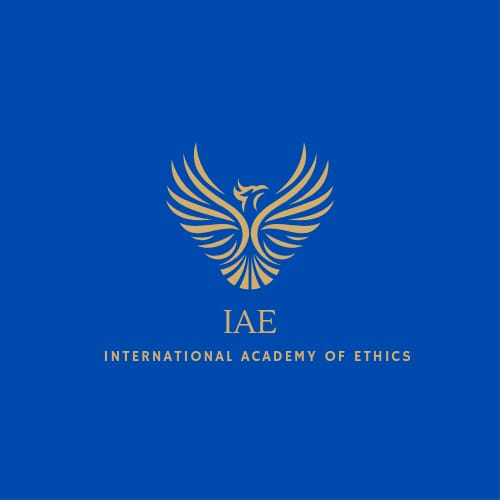RAWLE IAM JAMES (CANADA) A FELLOW OF THE INTERNATIONAL ACADEMY OF ETHICS
My Thoughts on Ethics
edited by Marianne Tefft
IN THE West, our present-day world seems upside down and lost as we walk the paved road of intention. How did we get to this point? We are not going to hell in a handbasket; however, we are in a stage of discomfort that brings about change and transformation. As we wade through these murky waters, it appears that ethics have taken a vacation from our collective common sense.
What are ethics? According to the Oxford Dictionary, ethics are moral principles that govern a person’s behaviour or the conducting of an activity. the branch of knowledge that deals with moral principles. The Government of Canada website states, Ethics examine the rational justification for our moral judgments; they study what is morally right or wrong, just or unjust. In a broader sense, ethics reflect on human beings and their interactions with nature, other humans, freedom, responsibility and justice.
The word “ethics” is derived from the Greek word ethos, which means a way of living. The field of ethics, or moral philosophy, investigates theories that can systematically describe what makes acts right or wrong.
Moral philosophy is usually divided into meta-ethics, applied ethics and normative ethics; however, I write as a layman who has experienced the good, the bad, the ugly and the beauty of life. I write as an observer who believes ethics express our intention to live harmoniously as individuals and collectively in this illusion of separation.
Ethics are constant and, at times, appear noble only when attached to being of service. Yet goodness and morality seem to have escaped our social and public discourse, as we reap the consequences of dismantling institutions that exist in our daily life. Family structures, education, politics and governments seem more focused on embracing superficial successes and unvetted ideologies than encouraging diverse thoughts; honest, respectful discourse and the holistic development of our human consciousness. At the same time, corruption floods our religious institutions, numbs minds and drains souls while asking individuals to ignore their knowledge and experiences and follow blindly, while the sins of religious practitioners are swept under the rug.
Many people are burdened with the mantra that humans are imperfect, yet we expect our institutions to be perfect. How can that be when, as the saying goes, the inmates have taken over the asylum? The more we evolve as a species, with great innovations and technologies at our disposal, the more it seems we become spiritually and ethically bankrupt.
Today, many express a worldview in which the bad and ugly of human experience must result from evil instead of the balance of duality. Of course, that there is no light without dark does not mean we should ignore injustice. But we must ask: Do ethics exist in the dark or only in the light? Are ethics a constant in the realms of the good/beautiful and bad/ugly?
Each of us is free to see and believe in life as we wish, for that is the beauty of this existence. I believe that Yah, my Higher Power, has implanted within me the knowledge that we are here to experience all of life, not to follow blindly, and to be balanced with faith. In this way, we are guided to seek wisdom through life experiences and to apply our acquired knowledge to develop wisdom.
In today’s world, separate standards of ethics seem to exist for the powerful and the powerless. In A Conflict of Vision, author Thomas Sowell writes that individuals hold either a constrained or unconstrained vision. The constrained vision demands checks and balances; it refuses to accept that people can put aside their innate self-interest. The unconstrained vision distrusts decentralized and systemic processes that limit human action; it holds that there is an ideal solution to every problem. Each is a distinct worldview, neither right nor wrong, and each claims to be ethical.
Ultimately, it is not about which outlook is “correct,” but about experiencing the consequences of both visions to learn and grow. If we did not proceed in this way, how could we be sure of what we know?
Let us continue to examine why we as spiritual beings exist in this Universe. Ultimately, can we learn all we need to know if we experience only love and light? To date, our efforts to create heaven on Earth have produced great suffering and misery. Is it death and the unknown that we fear most?
Often, it seems that ethics do not matter. But because life matters, I believe that ethics matters, too.
About Rawle:
Rawle is a student of life and thus Life is his greatest teacher. The business world was Rawle’s university. It is where he developed and cultivated his abilities to create value for his employers. It was also in the corporate world where his purpose first showed through the development of attraction and retention employee strategies. He spent over 20 years in the corporate world in a variety of different roles and was fortunate to have worked alongside good-hearted and well-intended people.
“I am evolution – therefore I am always evolving”
—
Rawle Iam James
Poet/Spiritual Guide/Cultural Activist
Know You Are LOVE
You send me
to the universe within
to Love’s divinity
the soul of my soul
to where Possible lives
(From the poem You think you know)
